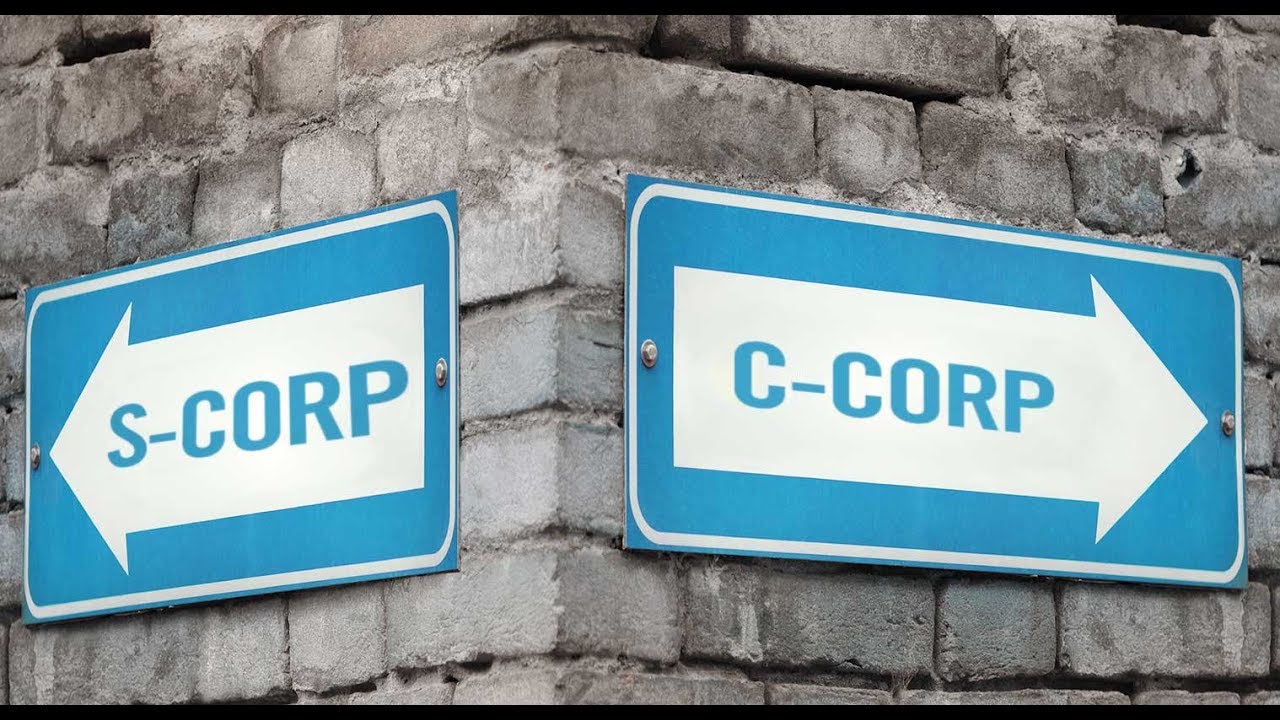When starting a new business, one of the first and most important decisions you'll need to make is choosing the right business structure. Your choice will impact everything from your personal liability to your tax obligations and the way your business is managed. With several options available, it’s crucial to understand the differences between them to ensure that you choose the structure that best supports your business goals.
In this blog post, we’ll break down the three most common business structures—C Corporations (C Corp), S Corporations (S Corp), and Limited Liability Companies (LLC)—and help you determine which one is the best fit for your new business.
1. C Corporation (C Corp): The Traditional Choice
A C Corporation is a separate legal entity from its owners, providing the highest level of liability protection. This is the most traditional corporate structure, commonly used by large businesses or those that plan to go public or raise significant investment funds.
Advantages of a C Corp:
- Limited Liability: Shareholders (owners) are protected from personal liability. In other words, their personal assets are not at risk if the company faces legal issues or debt.
- Unlimited Growth Potential: C Corps can issue multiple classes of stock, which makes it easier to raise capital through investors and venture capitalists. This is ideal if you plan to scale quickly or go public.
- Attracting Investors: Because of the ability to issue shares, a C Corp structure can be appealing to investors looking to buy stock in the company.
Disadvantages of a C Corp:
- Double Taxation: One of the biggest drawbacks of a C Corp is that the business itself is taxed on its profits, and then shareholders are taxed again on any dividends they receive. This can result in double taxation.
- Complexity and Cost: C Corps require more paperwork, administrative responsibilities, and regulatory compliance compared to simpler structures like LLCs. This can result in higher costs for setup and ongoing maintenance.
- Limited Deduction Options for Owners: Shareholders who are also employees can only deduct certain expenses. Unlike an LLC, a C Corp doesn't allow pass-through taxation, which can limit personal tax benefits for the owners.
Best for:
- Businesses that need to raise large amounts of capital.
- Companies that plan to go public or attract venture capital.
- Businesses with a large number of shareholders.
2. S Corporation (S Corp): The Tax Advantage Option
An S Corporation is a special tax designation available to certain small businesses. While it retains the liability protection of a corporation, it allows for "pass-through" taxation, meaning the business itself does not pay federal income tax. Instead, income, losses, deductions, and credits are passed through to shareholders, who report these items on their personal tax returns.
Advantages of an S Corp:
- Pass-Through Taxation: Unlike a C Corp, an S Corp doesn’t pay federal income taxes. Instead, profits and losses are passed through to shareholders and reported on their personal tax returns. This helps avoid double taxation.
- Liability Protection: Like a C Corp, an S Corp provides limited liability protection for shareholders, which means their personal assets are protected from business debts or legal actions.
- Tax Savings on Self-Employment: S Corps allow owners to pay themselves a reasonable salary, with any additional profits being distributed as dividends, which are not subject to self-employment taxes (Social Security and Medicare). This can lead to tax savings compared to an LLC.
Disadvantages of an S Corp:
- Ownership Restrictions: S Corps are limited to 100 shareholders, and those shareholders must be U.S. citizens or residents. It also cannot be owned by other corporations or LLCs, which limits flexibility for certain types of investors.
- Formalities and Administrative Burden: While less burdensome than a C Corp, an S Corp still requires certain corporate formalities, such as holding annual meetings and maintaining corporate minutes.
- Limited Stock Options: S Corps can only issue one class of stock, which could limit the ability to raise capital or offer different types of equity to investors.
Best for:
- Small businesses that want to avoid double taxation.
- Businesses with fewer shareholders and a focus on domestic operations.
- Companies looking for tax savings while still maintaining corporate liability protection.
3. Limited Liability Company (LLC): The Flexible Choice
An LLC is a hybrid structure that combines the liability protection of a corporation with the flexibility and tax advantages of a partnership. It’s one of the most popular business structures for small and medium-sized businesses due to its simplicity and adaptability.
Advantages of an LLC:
- Pass-Through Taxation: By default, LLCs are treated as pass-through entities for tax purposes. This means the business itself is not taxed; instead, profits and losses are passed through to the owners' personal tax returns, avoiding double taxation.
- Flexibility: LLCs offer great flexibility in management and taxation. Owners can choose to be taxed as a sole proprietorship, partnership, S Corp, or C Corp, depending on what is most advantageous for their situation.
- Limited Liability: Like corporations, LLCs provide personal liability protection for the owners, meaning their personal assets are typically shielded from business debts and legal liabilities.
- Fewer Formalities: LLCs are not required to follow the same formalities as corporations, such as holding annual meetings or keeping minutes, which makes them easier to maintain.
Disadvantages of an LLC:
- Self-Employment Taxes: In most cases, LLC owners are considered self-employed, which means they must pay self-employment taxes (Social Security and Medicare) on the business's profits. However, LLC owners can opt for S Corp taxation to avoid this.
- State-Specific Regulations: LLCs are subject to varying regulations and fees depending on the state in which they are formed. Some states impose additional taxes or annual fees that can make LLCs more costly to maintain.
- Limited Growth Potential: While LLCs offer flexibility, they may not be the best choice for businesses that plan to attract significant outside investment, as they can’t issue stock like a corporation.
Best for:
- Small businesses or startups looking for simplicity and flexibility.
- Companies that want to avoid double taxation without the complexity of a corporation.
- Entrepreneurs who prioritize liability protection and operational flexibility.
4. Choosing the Right Structure for Your Business
When deciding which business structure is right for you, consider the following factors:
- Your Business Goals: Do you plan to raise capital or go public? If so, a C Corp may be the best option. If you're aiming for a smaller, closely held business, an LLC or S Corp may provide more benefits.
- Tax Considerations: If you want to avoid double taxation, an LLC or S Corp may be more suitable, depending on your personal tax situation. If you're okay with double taxation and need to scale quickly, a C Corp could be the way to go.
- Liability Protection: All three structures—C Corp, S Corp, and LLC—offer limited liability protection, but the way they handle taxes and ownership can affect your overall business operations.
- Flexibility and Growth: If flexibility and ease of operation are important to you, an LLC might be the best choice. However, if you're looking to grow rapidly and attract investors, a C Corp may provide the best long-term growth opportunities.
Conclusion
Choosing the right business structure is a critical decision that will impact your company’s taxes, operations, and growth potential. Whether you choose a C Corp, S Corp, or LLC, it’s important to understand the benefits and drawbacks of each structure and how they align with your business objectives.
If you're unsure which structure is best for your new business, our team of financial experts is here to help. Contact us today for personalized advice and support in navigating the complexities of business formation and ensuring your business is set up for long-term success.





0 Comments